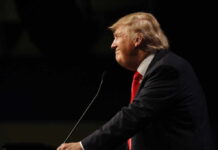
In an alarming display of the long-term impacts of the Biden administration’s military vaccine mandate, a recent report from CNN shows that a mere 43 out of over 8,000 service members who were discharged due to their refusal to take the vaccine have sought to rejoin the forces. This revelation underscores the deep-rooted mistrust and the lingering bitterness among the military ranks.
The breakdown is telling: Among the main service branches, 19 have rejoined the Army, 12 returned to the Marine Corps, one to the Air Force, and a paltry two to the Navy. Such figures starkly challenge the narrative propagated by some that the vaccine mandate had no significant effect on military recruitment or retention.
"Mission Accomplished" commander Biden….🤦
Report: Only 43 Out of 8,000 Troops Discharged over Biden’s Military Vaccine Mandate Have Sought to Rejoinhttps://t.co/hyHHeMGvXP— floridanow1 (@floridanow1) October 6, 2023
While the Biden administration and confident analysts assert that these numbers are inconsequential, voices within the military community tell a different story. Retired Air Force Master Sergeant Nick Kupper, who faced a similar fate but eventually avoided discharge, elucidates the prevalent sentiment. He draws a rather poignant parallel, suggesting that returning to the military post the mandate is akin to returning to a treacherous environment filled with broken promises. Kupper’s concerns aren’t misplaced, as he suspects the Defense Department will reinstate the vaccine mandate with the next National Defense Authorization Act (NDAA).
Concurring with Kupper, recently retired Army Chief Warrant Officer 2 Samuel Shoemate, who manages a military whistleblowing platform, believes the military lost the trust of many of its personnel. “Service members and their families felt betrayed by DOD leadership,” Shoemate articulates, emphasizing the severe hardships many faced due to their refusal.
At the heart of the distrust is the contention that the military, under the Biden administration, distributed a version of the vaccine, which was still under Emergency Use Authorization (EUA), hence not FDA-approved. This decision allegedly bypassed service members’ due process and constitutional rights, thus instilling a deep-seated sense of betrayal.
Despite the defense establishment claiming that they surpassed retention goals for most of 2023, this argument does little to heal the wounds of those discharged. Sen. Tommy Tuberville, a prominent Republican voice on defense matters, remains steadfast that the vaccine mandate “damaged readiness” and significantly impacted the strength of the force. His concerns, echoed by fellow Republicans, underscore a belief that the mandate also adversely affected recruitment and retention.
Indeed, the military’s choice to mandate a vaccine, only to retract it 15 months later, sets a concerning precedent. The reversal of the vaccine requirement is perhaps the first of its kind in U.S. military history.
While some experts argue that younger troops may have moved on to different career paths and that older service members could have opted for early retirement, it’s essential to understand the issue’s core. Kate Kuzminski from the Center for a New American Security posits that many might have seen the mandate as an avenue to break free from binding commitments within the military. However, the broader point remains — a significant portion of our military personnel felt so aggrieved that they chose to stay away even after the mandate’s repeal.
The future impact of this chasm between the military and its personnel remains uncertain. What’s clear is the critical lesson it imparts. Policy decisions, particularly those affecting the guardians of our nation, need to be made with foresight, empathy and an unwavering commitment to preserving trust.

















